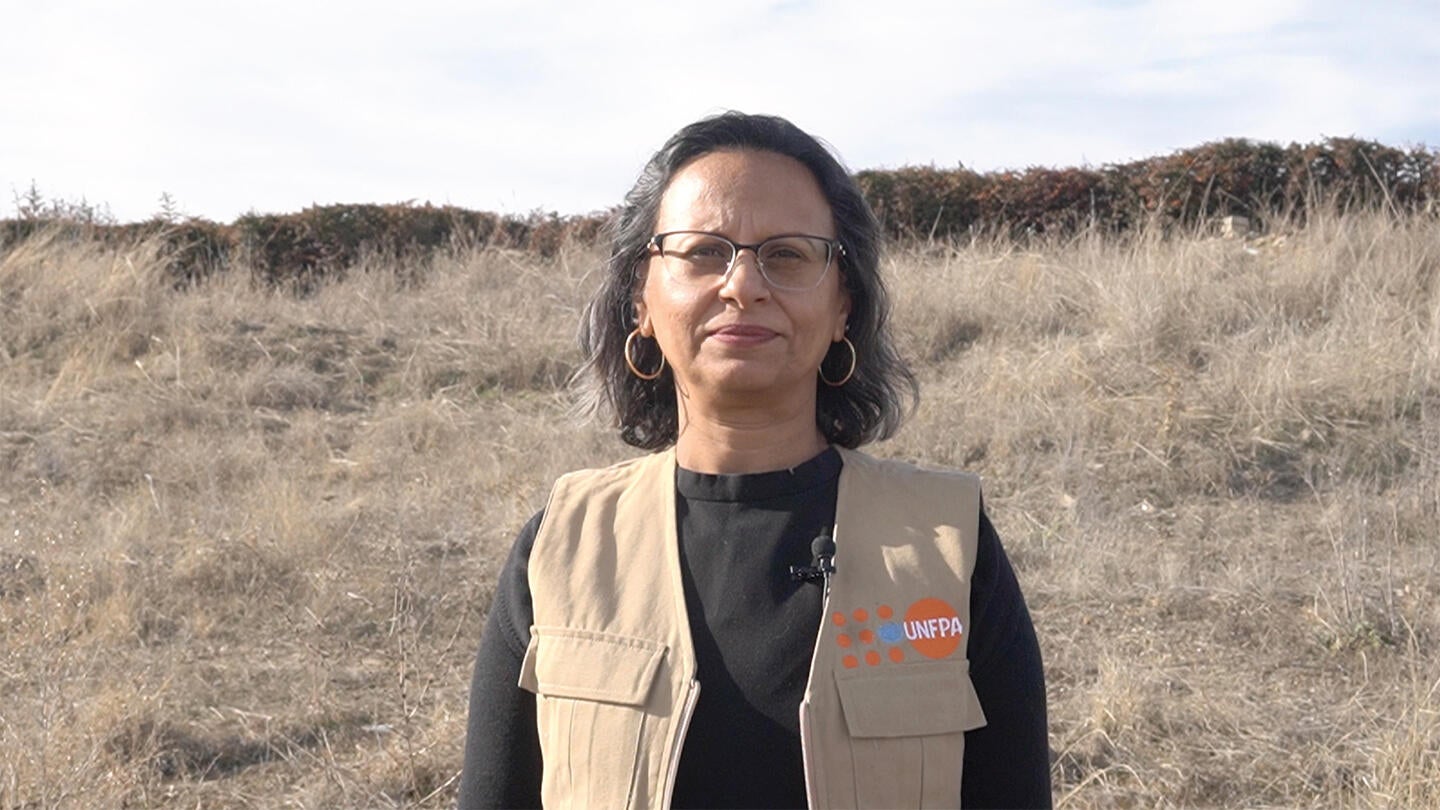Two years ago, devastating earthquakes hit 11 provinces in southern Turkey. They affected over 9 million people. Today, two years on, almost half a million still have not fully resettled into permanent housing. Currently, there are still over 1.6 million people in need. In the most affected provinces, there is approximately 1.2 million women and girls of reproductive age, including 416,000 women and girls who need sexual and reproductive health services. 22,800 of them are pregnant.
I'd like to share five facts with you about those living in these difficult conditions still.
The first is about where they live. Those in container cities have limited access to security and privacy. It affects their physical well-being, their mental well-being, and their hope for the future. This is especially pertinent for women and girls who have menstrual hygiene needs.
The second is about their access to services, services like health, services like transport, all of which is still under reconstruction. Those with disabilities are even more challenged in being able to access basic health and transport infrastructure.
The third is about economic hardships. means that there is higher risks and higher incidence of gender-based violence. We also know that families are having to make difficult choices about whether they can retain their girls in school or not. We see girls dropping out more often now, puts them at risk of forced early and child marriages.
The last fact is about young people. They are lonely, they have limited hope for the future, there is despair. They need specific psychosocial support. Without that, they're at higher risk for behaviours that will compromise their futures. Risks of addiction, of physical risks, mental health, emotional well-being, all is compromised at present.
UNFPA has been on the ground since day one with national partners supporting government efforts to help those who were affected. But now, with significant funding cuts, we're calling out to everyone to do what they can.
I invite you to visit the UNFPA website, explore what you can do and take action now because together we can help those who are affected
Current situation in the earthquake region after two years



